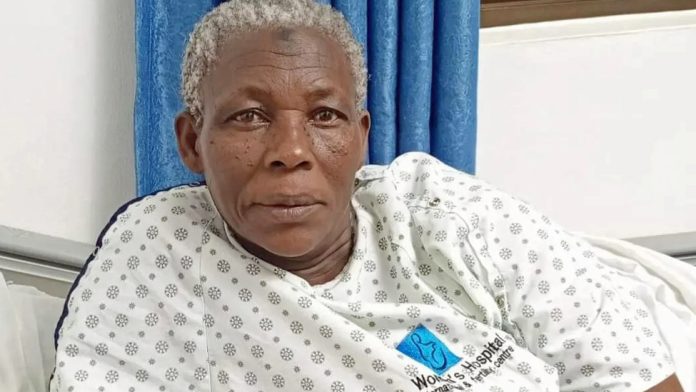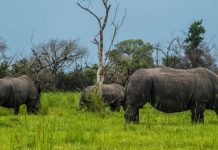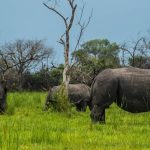In an extraordinary medical achievement, a 70-year-old Ugandan woman, Safina Namukwaya, has successfully given birth to twins through in-vitro fertilization (IVF) treatment, making her one of the oldest women in the world to get this achievement. This remarkable event occurred on Saturday, December 2, 2023.
Namukwaya’s inspiring journey towards motherhood began with a strong desire to have children despite societal pressures and her advanced age. Seeking guidance and potential treatment options, she turned to the Women’s Hospital International and Fertility Centre (WHI&FC) in Kampala, Uganda, where a team led by renowned fertility specialist Dr. Edward Tamale Sali carefully evaluated her condition. IVF, utilizing a donor egg and her partner’s sperm, was identified as the most promising option, considering Namukwaya’s good health and strong support system.
The procedure resulted in the birth of twins, marking a significant achievement for Africa’s oldest mother at the age of 70, as celebrated by WHI&FC on its Facebook page.
Although Namukwaya’s pregnancy faced challenges, with premature birth occurring at 31 weeks, the twins are now reported to be stable and in good health under the vigilant care of the WHI&FC medical team.
Namukwaya’s story, while bringing joy to her and her family, serves as a beacon of hope for others grappling with fertility challenges. The advancement in reproductive technology, particularly IVF, has opened up new possibilities for individuals who once believed parenthood was beyond their reach.
The hospital commended Namukwaya not only for the medical success but also for showcasing the strength and resilience of the human spirit.
Despite the inspirational nature of Namukwaya’s story, it has sparked mixed reactions worldwide. While some commend her courage and determination, others express concerns about the ethics of IVF for older women.
Namukwaya revealed that her pregnancy was difficult, especially as her partner abandoned her upon learning she was expecting twins. This is her second delivery in three years, as she gave birth to a baby girl in 2020. Her desire for children stemmed from societal pressures and a fear of being alone in old age.
Typically, women go through menopause between the ages of 45 and 55, and fertility declines around this time. However, advances in medicine, such as IVF, have made it possible for women to give birth even after menopause.
Namukwaya’s story mirrors that of a 73-year-old Indian woman who gave birth to twins following IVF treatment in 2019.
In the broader context, the process of in vitro fertilization (IVF) involves surgically removing eggs from a woman’s ovary and fertilizing them with sperm in a Petri dish outside the body. After confirming successful fertilization and initial cell division, the resulting embryos are transferred into the woman’s uterus, bypassing any fallopian tube issues.
Any surplus embryos can be cryopreserved for future use, simplifying subsequent cycles. Despite potential risks associated with IVF, such as side effects from fertility medicines and rare complications during egg retrieval, the procedure has offered hope and success to many couples seeking to build their families.
The ethics of IVF for older women remain a complex topic, with differing opinions on the right to choose parenthood at any age. The American Society for Reproductive Medicine (ASRM) provides guidelines for counseling women over 45 considering IVF, emphasizing the importance of discussing risks and benefits. For women over 50, the ASRM recommends IVF only for those with specific medical conditions hindering natural conception.
Namukwaya’s story is a given example of the power of modern medicine in realizing dreams of parenthood and underscores the resilience of the human spirit. While IVF is intricate and not always successful, for Namukwaya, the risk was worth it as she embraces motherhood with three children.












